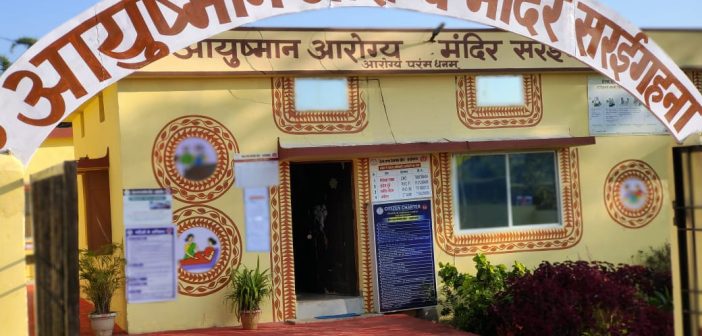In a recent announcement by the Ministry of Ayush, the operationalization of Ayush Health and Wellness Centres (AHWCs), now renamed Ayushman Arogya Mandir (Ayush), has marked a major success under the Ayushman Bharat initiative. As part of the Centrally Sponsored Scheme of the National Ayush Mission (NAM), this program aims to enhance primary health care by transforming existing Ayush dispensaries and sub-health centers into holistic wellness centers based on Ayush principles.
Overview of the Scheme
The Ayushman Arogya Mandir initiative was launched with the objective of providing universal access to an expanded range of primary health care services rooted in traditional Ayush practices. Under this scheme, 12,500 units of existing Ayush dispensaries and sub-health centers were approved for transformation across various States and Union Territories (UTs).
Current Status
As of the latest report from the Ministry of Ayush, a total of 12,121 Ayushman Arogya Mandir centers have been made functional out of the approved 12,500. This achievement represents a significant step towards improving primary health care infrastructure across the country.
State-Wise Breakdown
States with 100% Functional Centers:
- Andaman & Nicobar Islands: 6 approved and functional.
- Andhra Pradesh: 126 approved and functional.
- Arunachal Pradesh: 89 approved and functional.
- Assam: 500 approved and functional.
- Chhattisgarh: 400 approved and functional.
- Goa: 100 approved and functional.
- Gujarat: 365 approved and functional.
- Himachal Pradesh: 740 approved and functional.
- Jammu & Kashmir: 523 approved and functional.
- Kerala: 700 approved and functional.
- Lakshadweep: 7 approved and functional.
- Madhya Pradesh: 800 approved and functional.
- Meghalaya: 45 approved and functional.
- Mizoram: 41 approved and functional.
- Nagaland: 49 approved and functional.
- Odisha: 422 approved and functional.
- Puducherry: 4 approved and functional.
- Punjab: 158 approved and functional.
- Rajasthan: 2019 approved and functional.
- Sikkim: 18 approved and functional.
- Tamil Nadu: 650 approved and functional.
- Telangana: 421 approved and functional.
- Tripura: 72 approved and functional.
- Uttar Pradesh: 1034 approved and functional.
- Uttarakhand: 300 approved and functional.
- West Bengal: 540 approved and functional.
States with Partial Functionality:
- Bihar: 294 approved, 113 functional.
- Chandigarh: 12 approved, 11 functional.
- Haryana: 538 approved, 506 functional.
- Jharkhand: 745 approved, 648 functional.
- Maharashtra: 390 approved, 345 functional.
- Manipur: 15 approved, 15 functional.
- Delhi: 0 approved, 0 functional.
- Ladakh: 0 approved, 0 functional.
Key Highlights
- Total Approved Centers: 12,500
- Total Functional Centers: 12,121
- Percentage of Functional Centers: 97%
Implications and Future Outlook
The significant achievement in operationalizing over 12,000 Ayushman Arogya Mandir centers reflects the commitment of the Ministry of Ayush and State/UT Governments towards improving primary health care accessibility. The program aims to enhance the integration of traditional Ayush practices with modern health care systems, providing a holistic approach to wellness.
Challenges Ahead:
Despite the overall success, certain regions, particularly Bihar, Maharashtra, and Jharkhand, face challenges in reaching the 100% functionality mark. Addressing these issues will be crucial for ensuring that the benefits of the Ayushman Arogya Mandir scheme reach all intended beneficiaries.
Looking Forward:
The continued expansion and operational success of Ayushman Arogya Mandir centers will be pivotal in achieving the broader objectives of Ayushman Bharat, including universal health coverage and the promotion of traditional health practices.
Conclusion
The Ayushman Arogya Mandir scheme stands as a testament to the effective implementation of Ayush principles in enhancing primary health care. With the majority of centers now functional, the program is set to make a lasting impact on the health and wellness landscape across India. Moving forward, efforts will be focused on addressing regional discrepancies and further strengthening the health care infrastructure.





